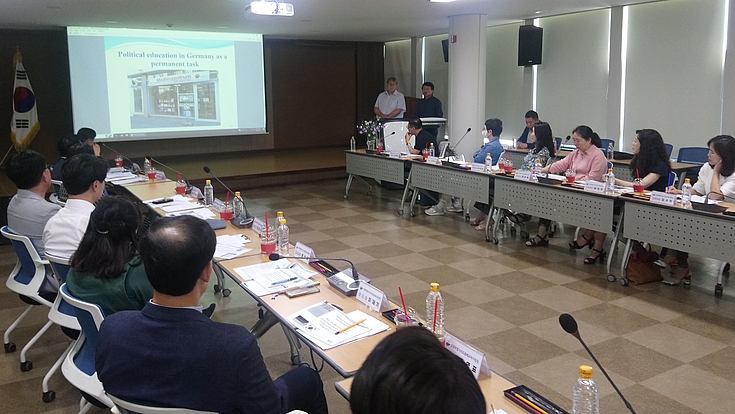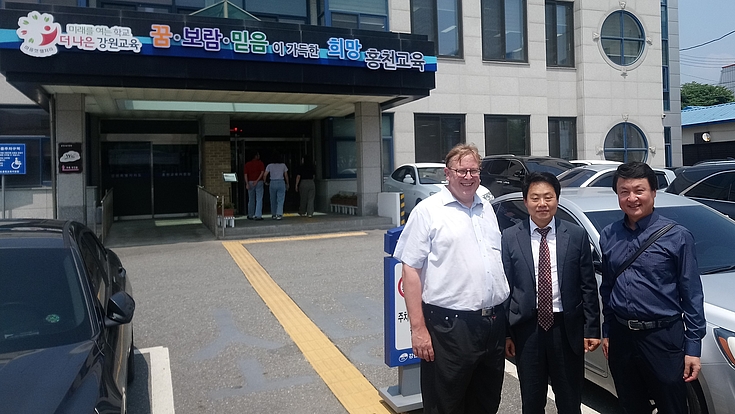Conference contribution
Lecture on the German education system to school inspectors of Gangwon Province

At the invitation of the deputy head of the Gangwon Provincial education office, Im Heung-Soo, Bernhard Seliger and Kim Young-Soo from the HSF, visited a school inspectors' meeting in Hongcheon. In his introductions, Dr. Seliger first explained that Germany had negative experiences with political education. After the Second World War, pluralism was the core of German education policy. The imparting of knowledge and values was not supposed to be the result of a one-sided precept, but independent. Added to this is Germany's federal system, in which 16 federal states have been given sovereign powers to organise their education systems individually. Political education has constitutional status in Germany, which is why there are agencies for civic education. A current challenge is that there are "problem districts" where teachers have to perform integration tasks, although this is not primarily their task.

The end of the GDR also meant an ideological collapse of East Germany. This gap was filled by radicalism and materialism. This had to be counteracted at the pedagogical-didactic level. Away from indoctrination, towards independent and critically thinking people. Derived from the mission to provide pluralistic and civic education, political foundations were also established. The foundations reflect different forces of the political spectrum, are party-affiliated and at the same time, however, legally and organisationally independent. Against the backdrop of Germany's economic success in the post-war period, German development aid took shape. The division of Korea is a major factor, which is why the HSF has a regional office here in Seoul. In conclusion, Dr Seliger affirmed that youth exchanges (e.g. KOR-JAP) are essential. Thirty years after German reunification, integration is complete; socially, it was the most difficult. Only the young generation is really growing up as a united country.
